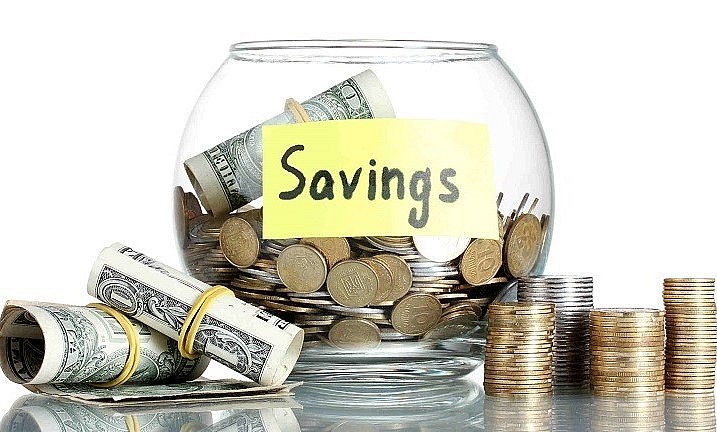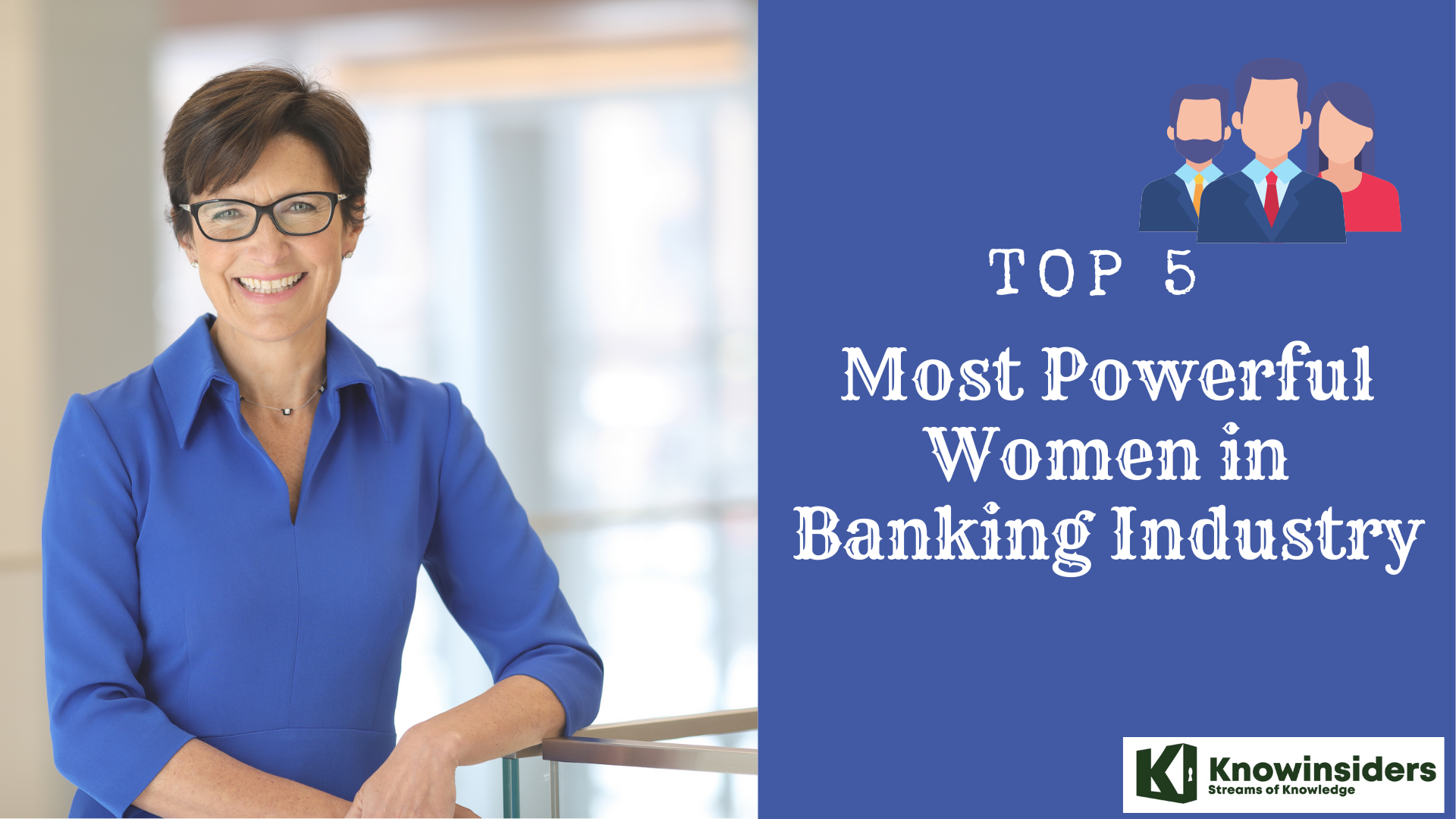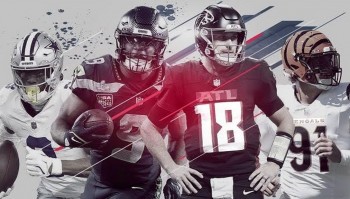Top 10 Best Saving Accounts and Rates in the U.S
 |
| Top Best Savings Account in the US Banks Today |
Which Bank Has the Highest Rate on a Savings Account in the U.S?
Savings interest rates at banks in the U.S are increasing day by day before the "catastrophe" of inflation and economic recession continue to increase.
The leading savings account rate in the country can fluctuate at any time, as banks and credit unions are free to adjust their rates on savings accounts whenever it suits their purposes. However, what you can see from our rankings of the top rates is that many of the best APYs come from Internet-only banks.
It's easy to choose the best savings accounts online at your local bank, but if you want to earn a high rate and pay the lowest fees, you should consider storing your savings in an online account. Without the added expenses of large branch networks, online banks, and nonbank providers can offer more favorable returns than national brick-and-mortar banks.
Stock indexes are continuously plunging, house prices are forecasted to fall sharply, etc. and saving is becoming the safest and best investment channel for Americans today.
The biggest banks in the U.S don't usually have the highest savings rates, but they are the safest.
Chase Bank, Bank of America, and Wells Fargo—three of the country's four largest banks by assets—offer savings account rates far below the national average. Competing heavily for deposit funds is something they simply don't do, as their business model and size enable them to secure sufficient capital from other sources.
Among the big-four banks, only Citibank offers a savings account product with a competitive interest rate.
Choosing to deposit money at the Top of the largest banks in the U.S or the place with the highest savings interest rate depends on each person holding money.
According to the latest statistic, the top bank's interest rate that you can currently earn from a nationally available savings account is 3.25% annual percentage yield (APY).
The best savings accounts typically don’t charge monthly fees. You make your deposit and watch your balance grow as your money earns interest.
We do not rank them according to advertising or sponsorship relationships, or any criteria other than APY, nationwide availability, and a minimum deposit of $25,000 or less.
Is my money safe in a savings account?Yes. Unlike investment accounts, savings accounts are guaranteed not to lose money — provided your money is insured by the Federal Deposit Insurance Corporation or the National Credit Union Administration. Whatever you put in an FDIC- or NCUA-insured account will stay there, unless your account charges fees (and, of course, unless you withdraw money). |
Top 10 Banks With The Best Saving Accounts in the USA
1.Elements Financial - 3.25% APY
2.DollarSavingsDirect - 3.00% APY
3.UFB Direct - 2.85% APY
4.Bask Bank - 2.75% APY
5.First Foundation Bank - 2.75% APY
6.CFG Bank - 2.75% APY
7.BankPurely - 2.75% APY
8.iGObanking - 2.75% APY
9.Ivy Bank - 2.70% APY
10.TAB Bank - 2.66% APY
Top 10 Best High-Yield Online Savings Accounts
1.Alliant Credit Union, funds insured by the NCUA.
APY: 1.80%
2.Ally, Member FDIC.
APY: 2.10%
3.American Express, Member FDIC
APY: 2.00%
4.Barclays, Member FDIC
APY: 2.25%
5.Bread Savings, funds insured by FDIC
APY: 2.15%
6.BrioDirect, Member FDIC
APY: 2.80%
7.Capital One 360, Member FDIC
APY: 2.15%
8.CIBC U.S., Member FDIC
APY: 2.32%
9.CIT Bank, Member FDIC
APY: 2.40%
10.Citibank, Member FDIC
APY: 2.20%.
What do the best savings accounts have in common?
The best savings account interest rates are around 2%. At a brick-and-mortar bank, you'll often find savings rates closer to the national average, which is currently 0.17%.
If you have a $5,000 savings balance, choosing an account that pays 2% will earn you about $100 in a year, while an account paying you the average would earn about $7. The difference increases the more you deposit and the longer you keep it in the account.
The bank interest rates are variable and can change over time. If you are looking for a fixed rate account, and can set aside funds for a specific time period without making a withdrawal, consider opening a certificate of deposit.
Online savings accounts
It's easy to find a savings account at your local bank, but if you want to earn a high rate and pay the lowest fees, you should consider storing your savings in an online account.
Without the added expenses of large branch networks, online banks and nonbank providers are able to offer more favorable returns than national brick-and-mortar banks.
 5 Most Powerful Women in Banking of the World 5 Most Powerful Women in Banking of the World Women's role in bank and financial industry have been treasured more than they did in the past. Here is 5 most powerful women in banking ... |
Top 10 Biggest Banks in the U.S. by Assets(The Federal Reserve, September 2022). 1. JPMorgan Chase Assets: $3.38 trillion Headquarters: New York 2. Bank of America Assets: $2.44 trillion Headquarters: Charlotte, North Carolina 3. Citigroup Assets: $1.72 trillion Headquarters: New York 4. Wells Fargo Assets: $1.71 trillion Headquarters: San Francisco 5. U.S. Bancorp Assets: $582.25 billion Headquarters: Minneapolis 6. PNC Financial Services Assets: $534.35 billion Headquarters: Pittsburgh 7. Truist Financial Assets: $532.08 billion Headquarters: Charlotte, North Carolina 8. Goldman Sachs Assets: $501.91 billion Headquarters: New York 9. TD Group US Holdings Assets: $405.22 billion Headquarters: Cherry Hill, New Jersey 10. Capital One Financial Assets: $388.44 billion Headquarters: McLean, Virginia |
Facts About The Savings Accounts and Interest Rates in the USA
What is a high-yield savings account?
A high-yield savings account is a type of federally insured savings product that earns rates that are much better than the national average. They can earn around 1.50% APY. By comparison, the national savings average is 0.17% APY.
Pros
• You can earn interest. Savings accounts allow your money to earn interest and grow.
• Your money is secure. Under law, your money in a savings account is protected by the FDIC or the NCUA.
• Helps you put away money for the future. Savings accounts allow you a secure place to put aside money, and many checking accounts allow you to set up auto deposits to your savings accounts.
Cons
• There may be withdrawal limits. Although Regulation D, which limited transactions, is now suspended, many banks still have limits on how many times you can transfer or withdraw from a savings account monthly.
• May not have high interest rates. Savings accounts have a variety of interest rates, and some account rates may not be as high as other savings options like investments.
How much interest will I get on $10,000 after a year in a high-interest savings account?
If your money is in an account that earns a strong rate, your balance will grow faster without any additional effort on your part. With a 1.50% APY, a savings balance of $10,000 would earn a bit more than $150 after a year. It may not make you rich, but the earnings are much better than an account with a 0.10% APY, which would earn about ten dollars.
Savings account terms you need to know♦ Savings account: A deposit account from a financial institution that typically earns interest. ♦ Interest: Money a financial institution pays into an account over time. ♦ Compound interest: Compound interest is the interest you earn on both your original money and on the interest you keep accumulating. In an account that pays compound interest, the return is added to the original principal at the end of every compounding period, typically daily or monthly. Each time interest is calculated and added to the account, the larger balance earns more interest. ♦ Annual percentage yield: The annual percentage yield, or APY, is the amount of interest an account earns in a year. The calculation is based on the account’s interest rate and the number of times interest is paid during the year. |
How do I choose the best high-interest savings accounts?
Look for accounts that have high interest rates and low service charges. You want to make sure you don’t have to pay a fee each month. Some institutions don’t charge monthly fees, while others do but will waive them if you meet a balance minimum.
Be willing to look beyond the larger, well-known banks. Many smaller institutions — including online banks and apps — feature good rates and low deposit requirements.
The highest APY savings accounts are easy to access
With online banking, you can access your account securely day or night. Online banks, credit unions and nonbank providers offer some of the best savings rates on the market while charging fewer fees than traditional banks. They also often offer good websites and mobile apps that typically let customers deposit checks and pay bills.
How to open an account with the best interest rates
Depending on the type of financial institution, you can open an account either online or in person. You’ll need to provide your Social Security number and contact information, along with at least one form of identification, such as a driver’s license or a passport. (For a joint account, everyone wanting access to the account must provide this information and ID.) You will often be required to deposit money into the new account right away. You can do that by depositing cash or checks, or through a wire transfer.
What to do if you can’t open a high-interest savings account
Occasionally, your application to open an account may not be approved. This is likely because of issues with your previous banking history.
Unpaid bank fees and bounced checks can result in a negative file on ChexSystems, a consumer reporting agency that financial institutions use to evaluate a prospective customer’s banking history.
Are high-yield savings accounts safe?
In short, yes. High-yield savings accounts at banks and credit unions are federally insured up to $250,000 per depositor, and many nonbank providers partner with banks for insurance. Accounts at banks are backed by the Federal Deposit Insurance Corp., while credit union accounts are backed by the National Credit Union Administration. This means that even if the financial institution fails, the government makes sure your money is safe and accessible.
Can I Open a Savings Account Online?
Traditionally, consumers opened a savings account at the same bank where they held their primary checking account. And for many Americans, this is still the case. However, with the advent of the Internet, personal banking options have expanded, and now the most lucrative savings accounts are available online.
This is true in two respects. First, traditional brick-and-mortar banks all have online banking capabilities at this point, and almost all of them allow an account to be opened online. So establishing a new savings account generally can be done from the comfort of your home, rather than requiring you to visit a bank branch.
Second is the important rise of Internet-only banks. These institutions are FDIC-insured banks that offer all the same protections on your funds as traditional physical banks. However, all of an Internet bank's transactions are initiated and carried out online, with no physical branches to build, staff, operate, or maintain. Without the expense of operating a physical footprint in one or multiple communities, online banks enjoy cost savings that allow them to offer higher rates on deposits than traditional banks can typically extend.
How Do I Use a Savings Account?
If your savings account is at a bank other than where you do your primary checking, an important consideration is that moving your money between checking and savings will not be instantaneous. Transfers between the two will be possible through electronic funds transfers, which sometimes can take place in one day, but may take two or more days, depending on the bank and the time of day you initiate the transfer. So a little more advance planning will be necessary whenever you need to withdraw funds from savings.
While an interim rule allows institutions to decide if they want to allow more than six transactions per month, rules and fees still vary by institution.5 So be sure you understand the possible fees and the account's statement cycle.
For deposits into your savings account at another bank, this is similarly possible via electronic funds transfer. But some banks will also offer a smartphone app that allows mobile check deposits, the use of an ATM card, or mail-in envelopes for check deposits.
Lastly, all FDIC banks, whether brick and mortar or internet-only, and all NCUA credit unions, carry U.S. government-backed insurance on up to $250,000 of deposits per individual per institution.32 If you hold more than that amount in the bank, you'll want to take steps to split the deposits across multiple institutions and/or multiple individuals (such as a spouse) to make sure all of your deposits are insured.
Can I Open Two Savings Accounts at the Same Bank?
Most banks that offer savings accounts allow you to open more than one. Why would you want to do this? Let's say you want to stash $15,000 in an emergency fund, but you're also making monthly deposits from your checking account to save for a big trip. By opening two accounts, you can keep these two different pots of money visually and mentally separate, making it easy to see how much you've accumulated towards your vacation goal. Some banks even let you give each account a nickname of your choosing.
You also may want to keep two savings accounts at different banks. It can be useful, for instance, to hold a savings account at the same bank as your primary checking, so that you have some surplus funds on hand if you need to make an instant transfer to checking.
Since you might be able to earn significantly more on your savings at a different bank, however, sending some of your funds to an auxiliary savings account can be a smart move for earning more and also reducing spending temptations.
Savings Account Glossary♦ 401(k). A retirement account created in conjunction with a private employer. ♦ 529 plan. A special savings account for education-related expenses such as tuition, meal plans and computers. It provides for investment growth and tax advantages that are similar to retirement accounts. ♦ ACH. Automated clearing house, an electronic network for fund transfers such as bill payments and payroll direct deposit. ♦ APY. Annual percentage yield, the effective annual rate of return taking into account the effect of compounding interest. ♦ CD. A certificate of deposit. It earns a higher rate of interest than a savings account, based on a maturity date where the depositor cannot touch the funds without incurring a penalty. ♦ Check clearing. The process of the funds in a check becoming available for the payee to use. When the funds are fully available, the check is said to have "cleared." ♦ Compounding interest. The further effect of interest on an account that has already collected interest. If a $100 account collects 10% interest per year, you will have $110 the first year and $121 the second year as a result of compounding interest. ♦ Credit union. A nonprofit money cooperative that functions much like a bank. Members can borrow from pooled deposits at generally low interest rates. Savings accounts at credit unions typically accrue more interest than at banks. ♦ Direct deposit. When the funds in a check are routed directly to your account without your having to endorse a paper check. Direct deposit is commonly used with employee paychecks. ♦ Funds availability. The amount of money in an account that the account holder can use. When the account balance is higher than the funds available, it often reflects that the funds in a check deposited to the account have not yet cleared. ♦ IRA. Individual retirement account. In a traditional IRA, the funds in these accounts are invested and the resulting growth is not taxed. ♦ Money market account. A savings account-type financial instrument where the money is invested solely in cash and cash-equivalent securities. In general, MMAs earn higher interest than savings accounts and may require higher minimum balances. ♦ Remote deposit capture. A method of depositing endorsed checks into an account by submitting pictures of them through a bank’s mobile app. |
 10 Oldest Surviving Banks In The World 10 Oldest Surviving Banks In The World Banking has been a part of life since the early days of human civilization. What is the first bank in the world? |























